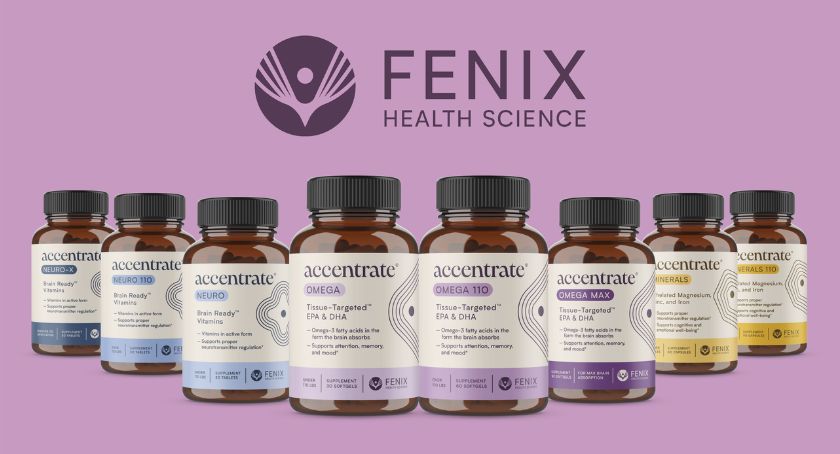Features
Enzymes: Moving Beyond Digestion
Amid growing public awareness, supplements that target specific health needs will help to expand the market.
By: Lisa Olivo

Diets bereft of nutritional value have become the norm in the U.S. Research suggests that on average, the typical American diet gets more than one-half of its calories (57.5%) from ultra-processed foods such as soft drinks, cookies, salty snacks, and French fries (Population Health Metrics, 2017). Meanwhile, less than one-third of calories are obtained from unprocessed or minimally processed food. This data, which was collected from over 9,000 participants in the U.S. National Health and Nutrition Examination Survey (NHANES), found that the more processed foods subjects consumed, the fewer vitamins, minerals, and other essential nutrients they had access to in support of their health.
Dietary enzymes are key nutrients naturally derived from nutritious, raw, and minimally processed foods, of which most people are not consuming nearly enough. As more consumers look to fill the nutritional gaps in their diets, they’re beginning to recognize the role enzymes can play in protecting and preserving health.
Concern for digestive health is a key issue attracting consumers to the enzyme supplement market. Digestive enzymes can be used to help the body process fiber (cellulase), protein (protease), carbohydrates (amalase), and fats (lipase).
Due in part to growing consumer awareness for the importance of digestive health, Grand View Research predicted the global digestive enzyme supplement market would reach $1.6 billion by 2025. The market research firm cited the prevalence of gastrointestinal diseases such as irritable bowel syndrome (IBS), inflammatory bowel disease, gastroesophageal reflux disease (GERD), and even constipation as prime concerns that are drawing new consumers to the category.
Meanwhile, systemic enzymes are a burgeoning category of supplements, as more consumers seek out personalized nutritional formulas targeting specific areas of health. Whether they’re looking for support for inflammation, immunity, or general wellness and detoxification, novel systemic enzyme formulas are offering nutritional support to a growing audience.
Digestion & Beyond
“All biological reactions within human cells depend on enzymes—they are necessary to sustain life,” explained Tod Burgess, vice president of sales for Deerland Enzymes & Probiotics, Kennesaw, GA. The critical role of digestive enzymes is to break down food-derived fats, carbohydrates, and proteins into smaller substances our bodies can more readily utilize. “Although the body produces its own digestive enzymes, it may not be enough to completely break down cooked or processed foods,” explained Mr. Burgess. “During cooking and processing, the natural enzymes present in raw foods are denatured.”
Additionally, the body does not produce cellulase, the enzyme needed to break down the cell wall of plants and release nutrient absorption. Mr. Burgess cautioned that, “Those who follow a vegetarian or vegan diet are likely missing out on key nutrients from the plant-based foods they’re eating and would most certainly benefit from an enzyme supplement.”
Properly digested foods are a key component to overall health, explained Melony Fuller, director of marketing, for National Enzyme Company (NEC), Forsyth, MO. “For foods to nourish our bodies, they first must be digested,” she said. “Native enzymes found in raw or fermented foods work with our body’s own digestive enzymes to support digestion. However, processed foods have little or no native enzymatic activity; so, the burden of digesting these foods falls entirely upon the enzymes produced in our digestive tract.”
As a result, too often consumers are not getting the most from their food, even among those eating relatively nutritious diets. “Supplemental enzymes may help bridge the gap by replacing the native food enzymes that are lost in processing,” said Ms. Fuller. “Additionally, when taken between meals, some enzymes can be absorbed into our system and become available for use in various physiological processes, easing the burden that systemic enzyme production can place on the body.”
Enzymes are among the most vital components of all biological systems, explained Shaheen Majeed, president worldwide, Sabinsa, East Windsor, NJ. He pointed to evidence from a growing body of clinical research that details various ways in which enzymes influence biological and biochemical processes, “ranging from optimal digestion and nutrient absorption to endocrine gland functioning, blood sugar levels, body weight, and inflammatory status.” However, he suggested that “modern day lifestyle problems and environmental pollution are putting enzyme homeostasis off-balance,” making the need for enzyme supplementation more essential than ever.
Expanding Applications
The health benefits provided by enzymes appeal to a broad range of consumers, said Mr. Majeed, “from infants to athletes to elderly people.” He suggested the latest category trends indicate digestive enzyme supplements are “getting more traction in segments like medical and infant nutrition, and sports nutrition.”
Sabinsa’s multi-enzyme complex DigeZyme is a proprietary formulation containing a specific blend of digestive enzymes. “This unique blend of enzymes not only helps in proper digestion and better absorption of nutrients, but has also been found to be effective in reducing muscle soreness occurring due to high-intensity eccentric exercise in a recently published clinical study [Majeed et al. Sports Nutrition and Therapy, 2016].” Results of the double-blind, placebo-controlled clinical trial found that supplementation with DigeZyme (50 mg, three times a day) for a period of three days in healthy volunteers led to decreased pain and tenderness associated with delayed onset muscle soreness (DOMS) induced by standardized eccentric exercise.
Dr. Naeem Shaikh, vice president of research and innovation for NEC, agreed that enzyme supplementation can benefit athletic performance, leading to increased opportunities for the market. “Both systemic and digestive enzyme formulations are beneficial with sports nutrition applications. As sports enthusiasts take in higher amounts of protein to support their muscle-building regime, a proteolytic enzyme system may increase the efficiency of those ingested proteins by reducing the amount of undigested proteins in the system. A typical proteolytic system must have a balanced combination of acidic, alkaline, and neutral proteases, exo- and endo-peptidase, as well as an enzyme activator.”
Deerland has designed an enzyme formula to support active individuals in absorbing and breaking down popular whey protein supplements. “In light of the fact that from casual fitness enthusiasts to extreme athletes, more people are consuming whey protein supplements than ever before, enzymes for protein hydrolysis are an ideal complement to these types of protein supplements,” explained Mr. Burgess.
To address the issues associated with the consumption of high amounts of dietary protein and protein supplements, Deerland Enzymes has introduced a protein hydrolysis product called ProHydrolase. “Backed by two human clinical studies, ProHydrolase has been shown to break down protein into smaller peptides in order for it to be used by the body for muscle recovery as intended, and also reduce potential for digestive discomfort,” said Mr. Burgess. “This advanced enzyme blend has shown a superior ability to break down whey, both in the lab and clinical study.” ProHydrolase is also effective on other types of protein, such as soy, casein, hemp, and pea, he added.
While many enzyme supplements claim broad digestive support, market insights from Packaged Facts, Rockville, MD, indicated a growing trend of enzyme formulas targeting more niche and specific health issues such as lactose or gluten digestion.
For example, the market research firm pointed to enzyme supplements supporting intolerance issues, such as Enzymedica’s DairyAssist, which was introduced mid-2015 to provide the lactase and a protease Thera-Blend process that helps lactose intolerant consumers digest dairy. Targeting gluten intolerance, GlutnGo from Bricker Labs is an enzyme supplement that helps degrade gluten; while Jarrow Formulas offers a similar supplement, Jarro-Zymes, for gluten digestion.
“Many of our customers have begun to focus on developing products for those with gluten sensitivity, many of whom experience symptoms that manifest in multiple ways,” observed Mr. Burgess. “An enzyme-based supplement taken with meals can assist the body in breaking down the proteins that can cause immune responses, such as gluten proteins. Based on extensive research, we’ve found that the fastest way to break down gluten is to cleave its peptide bonds internally and externally.”
The scientists at Deerland Enzymes have developed an enzyme supplement product called Glutalytic that is uniquely designed with both endo- and exo-peptidases to break down gluten proteins faster and more efficiently than traditional DPPIV-only supplements, Mr. Burgess explained. “By attacking the gluten protein in two ways, gliadin, the major immune eliciting protein fraction in gluten, can be degraded down from gram to milligram quantities by the time it reaches the small intestine. Glutalytic also has the unique ability to break down competing proteins that may also be present in a gluten-containing meal, such as milk, nuts, fish, and soy. By breaking down these competing proteins, the enzymes in Glutalytic are able to attack the gluten proteins faster.” However, he stressed that Glutalytic is not meant to be used as a replacement for a gluten-free diet, but rather as a “safeguard from accidental gluten consumption.”
Ms. Fuller referenced recent marketing analysis that examined dietary supplement enzyme trends, which also concluded that enzyme sales are primarily dominated by products supporting overall digestive health, as well as food intolerances. However, an emerging trend is the use of serrapeptase (serratiopeptidase), which she explained is used both as a digestive aid when taken with protein rich meals, and for soft tissue and cardiovascular support when taken between meals.
Formulas combining enzymes with probiotics are also a developing market trend, according to Ms. Fuller. NEC introduced BioCore FS-5 and FS-10 Billion as an enzyme/probiotic concept about two years ago. “It’s highly rewarding to see the concept come to fruition in the mass market,” said Ms. Fuller. “It’s a beautiful combination—a natural fit for one supplement to provide full digestive health for the upper and lower GI tract. Even more so, it is a story worth telling among the crowded probiotics market—it’s a unicorn in a crowded space.”
Analysis from Grand View Research suggested plant-based enzymes are appealing to consumers, leading to category growth. Plant-based enzymes accounted for 41.3% of the category’s overall revenue in 2015, according to the market researcher. The firm predicted considerable future growth for plant-based enzymes, particularly for formulas targeting acid reduction, indigestion/heartburn, and other digestive issues.
Enzymes are also being used as detoxifying agents. A recent product launch from Kimberly Snyder, nutritionist and New York Times bestselling author, “features powerful anti-candida enzymes that support fast healing and detoxing.” The new Beauty Detox Digestive Enzymes supplement is also designed to enhance digestion and assist in the absorption of critical nutrients, according to the company. The product also boasts “specialized enzymes that deliver two to three times more lipase, an enzyme that metabolizes fats, when compared to other enzyme supplements on the market.” Ms. Snyder suggested these enzymes are especially beneficial for breaking down plant fiber, helping to reduce bloating and gas.
Rainbow Light also offers a Candida Cleanse formula, boasting plant-sourced enzymes, over 250 million bioactive probiotics, and “cleansing herbs.” The supplement is designed to “promote healthy flora and balance,” and “establish healthier and more responsive gut flora, which in turn aids in improving digestion and overall wellness,” according to the company.
Research linking enzymes to the regulation of inflammation and weight management is another emerging application for these vital biological catalysts. A study led by Brown University researchers recently identified an enzyme that appears to regulate the physiology of white fat (which stores excess calories and is associated with obesity) and brown fat (which burns calories in order to produce heat), in a mouse model. The study identified the enzyme SNRK, which researchers said “suppresses inflammation in obesity-related ‘white fat’ while increasing metabolism in heat-producing ‘brown fat.’” This could make SNRK a novel approach in the battle against obesity, the study suggested.
Formulation & Delivery
Dosage and delivery format need to be carefully considered when formulating enzyme supplements, noted Sabinsa’s Mr. Majeed. Formulation type, potency, ease and accuracy of testing, specifications and standards, and targeted health areas are top concerns to keep in mind. In addition, “source is an important aspect to be considered as the market offers enzymes from different sources (e.g., animals, plants, and microbes),” according to Mr. Majeed. “Formulation type is also crucial, as some consumers would be looking for supplements for a particular condition (e.g., lactase for lactose intolerance) or a broad-spectrum supplement to address conditions like indigestion, bloating, or for better absorption of various nutrients.”
Furthermore, he stressed that determining specific enzyme activity or potency is important to an educated and discerning audience. “Generally, enzyme activity is calculated as ‘activity units’ using various assays and performed under specific conditions. Formulators have to carefully verify the authenticity of the material sourced from the supplier, best done by visiting production sites and assessing quality standards followed at every step (from raw material to finished product).”
NEC’s Dr. Shaikh said the industry norm is to consider physiochemical factors when creating an enzyme supplement. “When designing an enzyme formula, it requires more than the mere chemical properties of enzymes,” he said. “The enzyme mode of action, intent of supplementation and physiological aspects, in general, are even more crucial in achieving optimal results.”
However, delivery formats within the enzyme category are somewhat limited, Dr. Shaikh explained, due to the chemical nature of enzymes and its formula matrix compatibility. At this time, he said solid dosage forms are the most successful method currently available.
Levi Boudreau, chemistry laboratory supervisor, Lonza Consumer Health & Nutrition (formerly Capsugel prior to the company’s July 2017 acquisition) agreed, suggesting that capsules offer the best delivery for enzymes, as they offer superior efficiency and higher consumer compliance. Capsules, he said, have the ability to protect active ingredients prior to—and sometimes even after—consumption. Furthermore, he indicated capsules can offer higher levels of convenience and ease-of-use compared to traditional tablets, as they can be easier to swallow.
Delivery of digestive enzymes can be challenging, however, due to their sensitivity to stomach acids. “Some digestive enzymes are acid-sensitive and as such, like probiotics and some sports nutrition ingredients, might be damaged if not protected from stomach acids that can render them ineffective before they reach the intestines where digestion of food occurs,” explained Mr. Boudreau. “These include amalase, betaine hydrochloride, bromelain, enzidase, isolase, and lipase enzymes.”
Mr. Boudreau said capsules with a delayed release that can deliver ingredients closer to or in the intestine are ideal for these acid-sensitive ingredients. The Lonza Consumer Health & Nutrition portfolio offers Vcaps Plus capsules, low-moisture hydroxypropyl methylcellulose (HPMC) vegetarian capsules with a 20-30 minute dissolution profile (rather than gelatin capsules that dissolve immediately).
The company also offers DRcaps vegetarian capsules with unique acid-resistant polymer properties that slow down the capsule opening after swallowing and protect ingredients from stomach acids. “Made of low-moisture HPMC that helps keep the ingredients stable in the package before ingestion, the capsule also disintegrates more slowly than conventional gelatin or HPMC capsules because of the distinctive polymer,” explained Mr. Boudreau. “This polymer protects the capsule contents from opening in the stomach, opening only when the pH rises above 6.8—the average pH level of the entry into the intestines.”
In 2013, results of a third-party analysis of DRcaps demonstrated how these proprietary acid-resistant HPMC capsules offer superior benefits for delayed and targeted delivery of acid-sensitive ingredients like enzymes and probiotics. Conducted by Bio-Images Research in Glasgow, Scotland, the human clinical study was designed to investigate the in vivo behavior of DRcaps using a scintigraphic method to assess the gastrointestinal transit and release of the contents from capsules. Researchers utilized gamma scintigraphy, an established technique in which a radiolabel is swallowed and the disposition in the gut is photographed externally over time.
“Data and images empirically demonstrated the capsules’ effective protection from early activation caused by stomach acids and, for a majority of study subjects, complete release in intestines where products such as probiotics and enzymes work best,” Mr. Boudreau stated. “More specifically, the capsules began release in a mean time of 52 minutes after ingestion and when they were about to leave the stomach—a full 45 minutes later than an immediate release capsule. The capsules completely released the ingredients in a mean time of 72 minutes after ingestion and when most of the ingredients would most likely be in the intestines.”
Additionally, the capsules delay opening without the addition of synthetic chemicals, solvents, or other coating ingredients to the capsules. “Doing away with the coating step can reduce production time and cost for manufacturers, and make it easier for our customers to launch products rapidly.” It can also be more appealing to nutritionally minded consumers who are seeking out clean label products, and may perceive coatings as “unnatural,” Mr. Boudreau suggested.
As an alternative to the traditional tablet or capsule, some supplement companies have begun delivering powdered enzymes in “sprinkle” capsules. “Consumers have found that opening the capsule and then sprinkling and mixing the enzyme with food before eating yields good results,” said Mr. Boudreau. Lonza Consumer Health & Nutrition recently introduced Coni-Snap “sprinkle” capsules, an improved version of the standard capsule for sprinkled contents with reduced locking force that make it five times easier to re-open than a standard capsule that requires sufficient grip strength and dexterity. “This delivery format would be especially useful for the aging population who would be inclined toward use of enzyme supplements because natural enzyme creation slows as the years pass.”
Elevating the Market
Looking ahead, Sabinsa’s Mr. Majeed believes a growing audience will continue to recognize the benefits of enzymes to support a wide range of health factors, beyond digestion. “Though digestive enzymes have been consumed as supplements for managing digestive health for decades, evolving knowledge about enzymes based upon clinical studies demonstrating additional benefits are expected to place the category in a commanding position in coming years.”
Additionally, he suggested the introduction of microbe-based enzyme supplements has renewed consumer interest, “as they fare better over animal-based counterparts owing to their ability to function even at lower dosage, at a broader pH range, and at higher temperatures.” Mr. Majeed also predicted the rise of condition-specific enzyme supplements, as well as combination formulas featuring digestive enzymes, probiotics, and botanicals.
As more consumers continue to be proactive in preserving their health, and are empowered to use supplements as safeguards, information about the myriad benefits enzymes can offer will continue to spread. Ms. Fuller of NEC suggested the current “DIY era” would spur new interest in supplemental enzymes. “Anytime we need instant answers, we just ask Siri, Google or go to social media,” she said. “In this era, awareness of enzymes is escalating and the accumulative information available from SEO and online buying intuitiveness has created a positive effect.”
Nick Bruns, CEO of NEC, said he expects big things for the enzyme category moving forward. “The future for enzymes is promising. In the $38 billion dietary supplement market, the specialty category, which includes enzymes, contributes $7 billion to that pie. NEC estimates the dietary supplement enzyme manufacturing market is less than 1% of the overall vitamin/mineral supplement market, and a little over 4% of specialty supplements. Enzymes are a recipe for health and have limitless potential based on our aggregated legacy knowledge with formula matrices.”




















